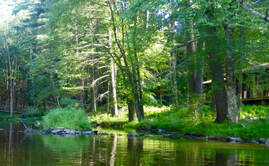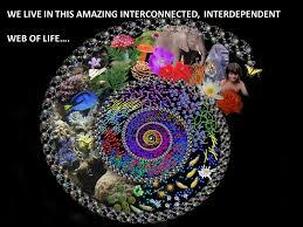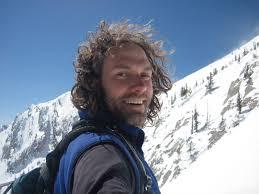Dear Friends, Several months ago I read this essay by Weston Pew, an educator and facilitator, and was moved by his portrayal of the separation we embody in our lives and how to encounter and re-member our selves back...

Dear Friends,
Several months ago I read this essay by Weston Pew, an educator and facilitator, and was moved by his portrayal of the separation we embody in our lives and how to encounter and re-member our selves back into the beauty and web of life. As we move into summer, a time when we might have a bit more time for solitude, reflection, visiting with our beloveds, and being outdoors – perhaps his words will provide some sparks for re-membering and re-weaving our web of connection – for all life. – Lynne
Finding Our Way Home
Weston Pew
My son, Mateo, recently turned three years old. It is impossible for me to witness his growth…without wondering what kind of planet we will be leaving them? Sometimes it feels as though when I cast my gaze out upon the world, I am witnessing, in slow motion, a shattering.
From one perspective something is breaking, from another something is being born.
Many writers have offered names to this place in time: “the space between stories” (Charles Eisenstein) or the Great Turning. (Joanna Macy)
For those embedded in the modern western worldview, the shift into a new story would require a different way of seeing ourselves in relationship with others and the natural world -- seeing the interconnectedness of our living systems, (David Korten), or the universe as “communion of subjects rather than a collection of objects” (Thomas Berry,) and understanding that “The paradox of our age is that we have bigger houses but smaller families…more knowledge, but less judgment; more medicines, but less healthiness.” (Dr. Bob Moorehead)
These quotes speaks to how we have lost ourselves in the dream of progress and forgotten something essential to our very existence: Life itself is a miracle; and such a miracle can only be fully expressed through the practice of living in right relationship to ourselves, our communities, the natural world, and the cosmos itself.
Re-membering as an Act of Resistance and Resilience
In this time of forgetting, as systems seem to be crumbling all around us, it is hard to know what to do and where to place one’s efforts for effective action. I am often reminded of Martin Luther King Jr.’s “fierce urgency of now,” or of the Buddhist precept of non-attachment.
I seek a third way, the process of re-membering – where we are not just recollecting, we are re-establishing membership with the larger living systems of which we are a part.
This is an inherently political act. It shatters the illusion of the separate self and re-stories and restores it back into the broader context of community, place, space, time, and history -- essential for the emergence of a more mature understanding of responsibility that takes into account the health and wellbeing of the larger living systems of which we are each a part.
Several months ago I read this essay by Weston Pew, an educator and facilitator, and was moved by his portrayal of the separation we embody in our lives and how to encounter and re-member our selves back into the beauty and web of life. As we move into summer, a time when we might have a bit more time for solitude, reflection, visiting with our beloveds, and being outdoors – perhaps his words will provide some sparks for re-membering and re-weaving our web of connection – for all life. – Lynne
Finding Our Way Home
Weston Pew
My son, Mateo, recently turned three years old. It is impossible for me to witness his growth…without wondering what kind of planet we will be leaving them? Sometimes it feels as though when I cast my gaze out upon the world, I am witnessing, in slow motion, a shattering.
From one perspective something is breaking, from another something is being born.
Many writers have offered names to this place in time: “the space between stories” (Charles Eisenstein) or the Great Turning. (Joanna Macy)
For those embedded in the modern western worldview, the shift into a new story would require a different way of seeing ourselves in relationship with others and the natural world -- seeing the interconnectedness of our living systems, (David Korten), or the universe as “communion of subjects rather than a collection of objects” (Thomas Berry,) and understanding that “The paradox of our age is that we have bigger houses but smaller families…more knowledge, but less judgment; more medicines, but less healthiness.” (Dr. Bob Moorehead)
These quotes speaks to how we have lost ourselves in the dream of progress and forgotten something essential to our very existence: Life itself is a miracle; and such a miracle can only be fully expressed through the practice of living in right relationship to ourselves, our communities, the natural world, and the cosmos itself.
Re-membering as an Act of Resistance and Resilience
In this time of forgetting, as systems seem to be crumbling all around us, it is hard to know what to do and where to place one’s efforts for effective action. I am often reminded of Martin Luther King Jr.’s “fierce urgency of now,” or of the Buddhist precept of non-attachment.
I seek a third way, the process of re-membering – where we are not just recollecting, we are re-establishing membership with the larger living systems of which we are a part.
This is an inherently political act. It shatters the illusion of the separate self and re-stories and restores it back into the broader context of community, place, space, time, and history -- essential for the emergence of a more mature understanding of responsibility that takes into account the health and wellbeing of the larger living systems of which we are each a part.

How do we re-member and re-story?
I believe many tools can be used to help facilitate this healing process such as culturally appropriate ceremonies and rituals that include grief, rites of passage, calendar celebrations, song and community singing, storytelling, community-supported gardens, dance, service work, and pilgrimage.
These tools restore us and ground us in the beingness of our humanity, allowing for the re-membering of the great tree of life and the reclamation of the miracle that we have been given on this pilgrimage that we call life.
On a personal level, one of the things that moves me the most...is that my great-great grandchildren will come to walk in the prayers of my footsteps and in turn lay down their own prayers for future generations.
Note: I’ve had to substantially edit this essay and I urge you to read the piece in its entirety.
?
WHAT CAN YOU DO?Read this piece in its entirety – Finding Our Way HomeExplore the tools mentioned in this essay: Culturally appropriate rituals and ceremonies that include griefCalendar celebrationsSong and community singing, storytelling & danceCommunity gardens, work, pilgrimageProvide your self with time for ritual, reflection, re-memberingShare your stories, song, ritual and more with those you care aboutSpeak up and care for sacred spaces and each other
I believe many tools can be used to help facilitate this healing process such as culturally appropriate ceremonies and rituals that include grief, rites of passage, calendar celebrations, song and community singing, storytelling, community-supported gardens, dance, service work, and pilgrimage.
These tools restore us and ground us in the beingness of our humanity, allowing for the re-membering of the great tree of life and the reclamation of the miracle that we have been given on this pilgrimage that we call life.
On a personal level, one of the things that moves me the most...is that my great-great grandchildren will come to walk in the prayers of my footsteps and in turn lay down their own prayers for future generations.
Note: I’ve had to substantially edit this essay and I urge you to read the piece in its entirety.
?
WHAT CAN YOU DO?Read this piece in its entirety – Finding Our Way HomeExplore the tools mentioned in this essay: Culturally appropriate rituals and ceremonies that include griefCalendar celebrationsSong and community singing, storytelling & danceCommunity gardens, work, pilgrimageProvide your self with time for ritual, reflection, re-memberingShare your stories, song, ritual and more with those you care aboutSpeak up and care for sacred spaces and each other

Weston Pew is an educator and facilitator, with MAs in experiential education and depth psychology. He is the founder of the Sacred Door Trail, a 200 mile non-denominational pilgrimage trail; and, of the Center for Relational Communities and Leadership.











